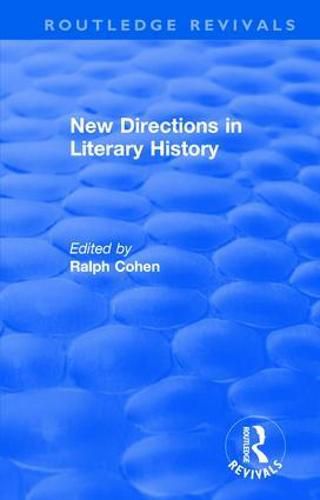Readings Newsletter
Become a Readings Member to make your shopping experience even easier.
Sign in or sign up for free!
You’re not far away from qualifying for FREE standard shipping within Australia
You’ve qualified for FREE standard shipping within Australia
The cart is loading…






First published in 1974, New Directions in Literary History is a collection of theoretical essays on literary history written by an international group of scholars. It is the first comprehensive attempt to present the approaches to literary history that have developed from phenomenology, from stylistics to linguistics, from Marxist reconsiderations of literature, from interdisciplinary studies, and from analyses of audience response. The essays deal with crucial problems in the study of literature: the relation of the contemporary critic to the works of the past, the place of method in literary study, and the role of readers of different periods in providing a guide to interpretation. Works from the Middle Ages to contemporary literature are discussed by the contributors, who do not neglect the practical implications of the theoretical issues treated.
$9.00 standard shipping within Australia
FREE standard shipping within Australia for orders over $100.00
Express & International shipping calculated at checkout
First published in 1974, New Directions in Literary History is a collection of theoretical essays on literary history written by an international group of scholars. It is the first comprehensive attempt to present the approaches to literary history that have developed from phenomenology, from stylistics to linguistics, from Marxist reconsiderations of literature, from interdisciplinary studies, and from analyses of audience response. The essays deal with crucial problems in the study of literature: the relation of the contemporary critic to the works of the past, the place of method in literary study, and the role of readers of different periods in providing a guide to interpretation. Works from the Middle Ages to contemporary literature are discussed by the contributors, who do not neglect the practical implications of the theoretical issues treated.